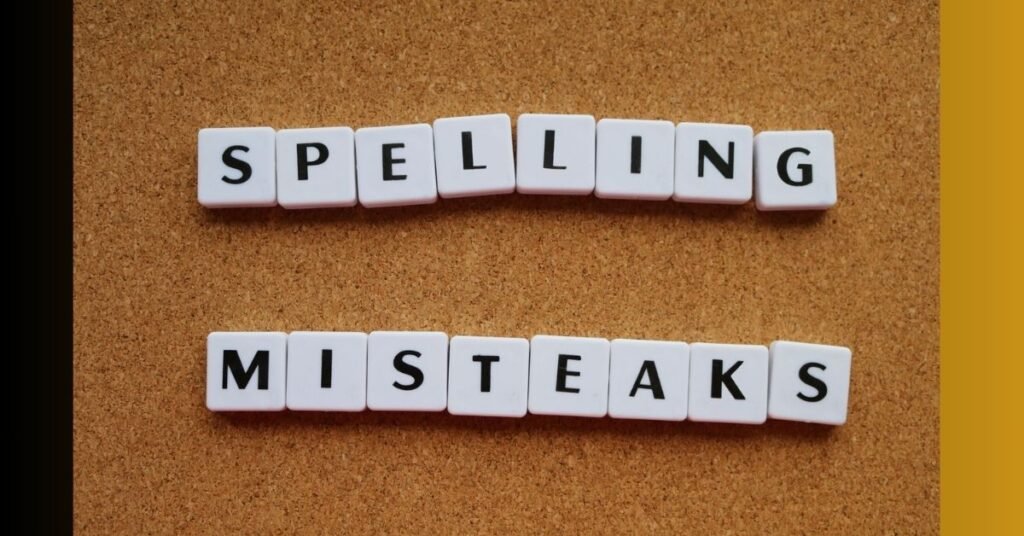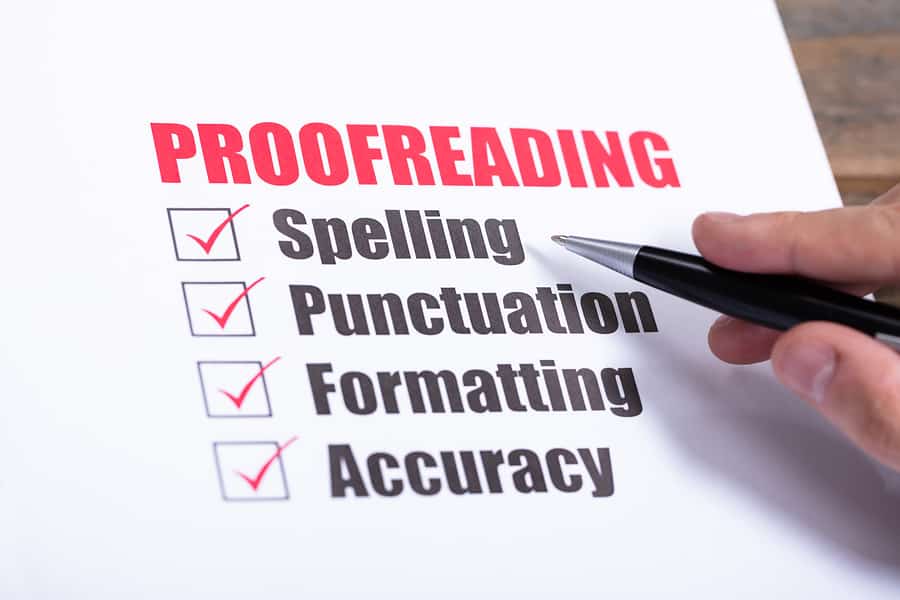Spelling mistakes: How to improve spelling mistakes
The English language, with its rich history and influences from across the globe, boasts a vast vocabulary and expressive power. Yet, for learners embarking on their journey with English, spelling mistakes can pose a significant hurdle. From silent letters lurking within words to the deceptive dance of vowels in “ie” and “ei,” spelling mistakes can trip up even the most diligent student. Spelling mistakes aren’t just about aesthetics; they can impede communication and hinder the flow of ideas.

However, take heart! Spelling mistakes are a natural part of the learning process, and with the right strategies and a dash of perseverance, conquering spelling mistakes becomes an achievable goal. This guide delves into the most common pitfalls that lead to spelling mistakes and equips you with effective solutions to navigate the intricacies of English spelling with confidence.
10 Common Spelling Mistakes for English Learners (and Solutions)
English spelling can be tricky, even for native speakers! Here are some of the most common pitfalls English learners face, along with solutions to help you master them:
-
Silent Letters: Words like “knight,” “doubt,” and “subtle” have letters that aren’t pronounced. Solution: Pay attention to pronunciation vs. spelling. Practice writing these words out loud and identify the silent letters.

-
Double Consonants: Many words have double consonants, like “committee” and “embarrassed.” Solution: Look for patterns with prefixes (com-, im-) and suffixes (-ment, -ed). Use a dictionary to check for unfamiliar words.
-
I vs. E: Deciding between “ie” and “ei” can be tough (believe vs. receive). Solution: Remember the mnemonic “I before E except after C” (like “believe” and “weird”). There are exceptions (like “receipt” and “seize”), so check a dictionary when unsure.
- Homophones: Words with the same sound but different spellings (their/there/they’re) cause confusion. Solution: Learn the meaning and context for each homophone. Use a dictionary with example sentences to understand the difference.

-
Confusing Sounds: “B” and “V” (believe/receive), “Th” sounds (thin/then), and vowel sounds (ship/sheep) can be tricky. Solution: Practice pronouncing minimal pairs (words that differ by only one sound) to distinguish them.
-
Vowel Teams: Understanding vowel teams like “ai” (rain), “ou” (sound), and “oi” (join) is important. Solution: Learn common vowel team patterns and exceptions. Make flashcards with different vowel teams and practice writing words that use them.
-
Words Borrowed from Other Languages: “Rendezvous,” “façade,” and “café” retain their original spellings. Solution: These words often follow the spelling rules of their origin language. Use a dictionary to learn the correct spelling and pronunciation.
-
Adding Unnecessary Letters: Doubling consonants in words like “accomodate” or adding “e” to “like” are common mistakes. Solution: Learn the root word and common suffixes. Use a dictionary to check for unfamiliar words.

-
Confusing Prefixes and Suffixes: Misspelling prefixes (mispell, unatural) or suffixes (-ful instead of -ble) can happen. Solution: Learn the most common prefixes and suffixes and their meanings. Create a list of these with examples for reference.
-
Proofreading: Even strong spellers make mistakes! Solution: Develop a habit of proofreading your writing carefully. Read your work aloud to catch any errors you might miss visually. Use spell checkers as a starting point, but don’t rely solely on them.

conclusion
In conclusion, spelling mistakes can be a hurdle for anyone learning English, but they don’t have to be a roadblock to clear communication. By recognizing common pitfalls like silent letters, double consonants, and vowel team confusions, you can equip yourself with strategies to conquer these spelling challenges. Utilize mnemonic devices, practice with minimal pairs, and leverage dictionaries to solidify your understanding.

Remember, even native speakers make occasional spelling mistakes. The key is developing a strong foundation in spelling rules, employing proofreading techniques, and embracing the continual learning process. As your confidence in spelling grows, so too will your ability to express yourself clearly and effectively in written English. So, keep practicing, embrace the journey of mastering spelling, and remember, even the smallest improvements can make a significant difference in your writing.
I have also written a post on how to increase vocabulary, and how to start english learning, Click on the link and read it in detail and if you like it then don’t forget to comment and share it with your friends. Also, give it a 5-star rating…
By understanding these common challenges and employing the solutions, you’ll be well on your way to mastering English spelling!









Sir this post is very amazing.
hi!,I really like your writing very a lot! percentage we communicate extra about your article on AOL? I need an expert on this house to resolve my problem. Maybe that is you! Having a look ahead to peer you.
Hello. magnificent job. I did not expect this. This is a remarkable story. Thanks!
I reckon something really interesting about your blog so I saved to my bookmarks.
I really prize your piece of work, Great post.
I really value your work, Great post.